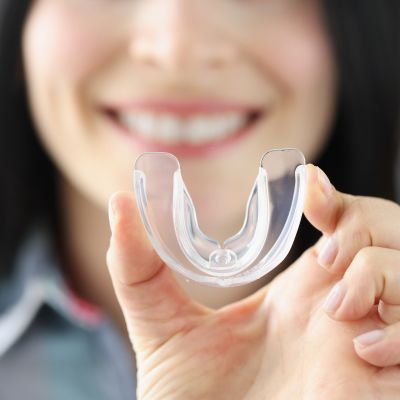 |
A mouthguard is a protective device that covers and shields the teeth, gums, and surrounding structures in the mouth during activities that pose a risk of oral injury. They play a vital role in protecting oral health and are used in sports, dental procedures, and to manage teeth grinding (bruxism) during sleep. Mouthguards prevent painful injuries and expensive dental treatments, especially for kids who are mostly active both in and out of school in physical activities that may cause dental injuries.
Mouthguards come in various forms, each designed for a specific purpose. Mouthguards are differentiated on the basis of their comfort, protection, durability, and fit. There are three general types of mouthguards:
Mouthguards can be used by anyone - children and adults - who participate in any type of sport. Generally, mouthguards only cover the upper teeth. However, if you wear braces or another fixed dental appliance on your lower jaw, your dentist may recommend a mouth guard for your lower teeth as well. An effective mouth guard should be comfortable, durable, and easy to clean, without restricting speech or breathing.
Sports Mouthguards are used during contact sports such as football, boxing, hockey, basketball and soccer to protect your teeth, gums and jaw from impacts and injuries. Sports mouthguards prevent hundreds of thousands of dental injuries each year, which are the most common type of facial injury in sports.
Sleep Apnea Mouthguards: Sleep apnea is a serious sleep disorder that causes temporary breathing cessation, increasing risks of heart disease and strokes. Your dentist can provide a custom-fitted mouthguard that pushes your lower jaw and tongue forward to help keep your airway open.
Bruxism Mouthguards: Nightguards are known as Bruxism Guards. They are typically worn at night to protect teeth from the teeth grinding or clenching. These help alleviate symptoms like jaw pain, headaches and any dental damage caused by grinding motion. If you wake up with a sore jaw, consider using a nightguard to prevent bruxism.
TMJ Disorder Mouthguards: Many people have TMJ issues, which can cause jaw discomfort, limited mobility, popping or clicking sounds, pain, and headaches. The cause is unclear, but it is often linked to arthritis, genetics, stress & anxiety, or jaw injuries. A custom-made mouthguard or splint worn at night is typically the first line of treatment, protecting teeth from wear and giving the jaw muscles time to recover.
To keep your teeth healthy and avoid harmful bacteria, it's important to keep your mouthguard clean and safe. Here are some tips:
Whether you're playing sports or you have a potential sleeping issue, a mouthguard can offer more protection, and comfort, and relieve symptoms. If you're still not sure what type of mouthguard you or your child need, contact our office to learn more!